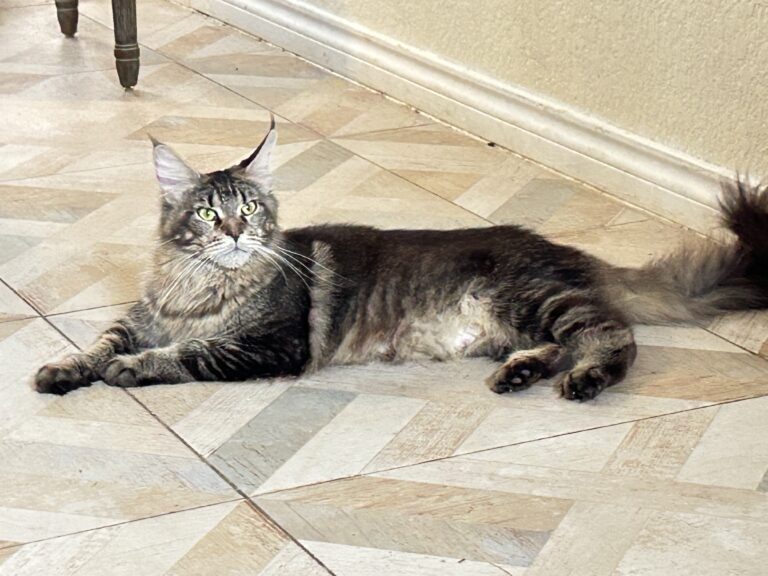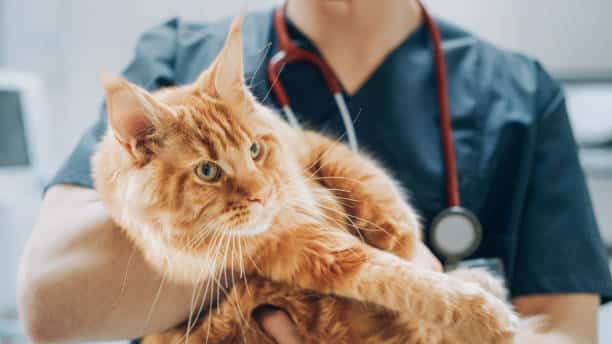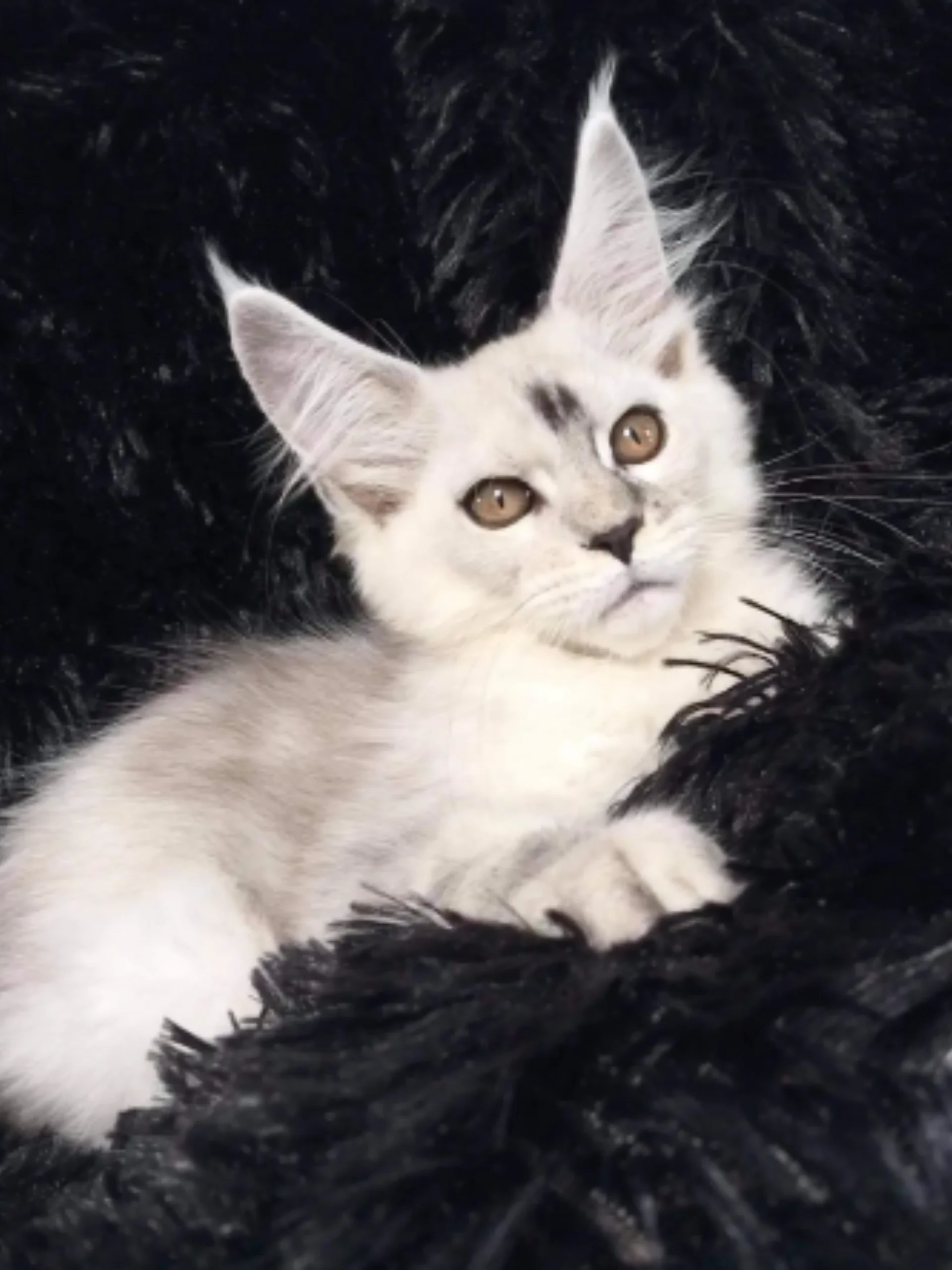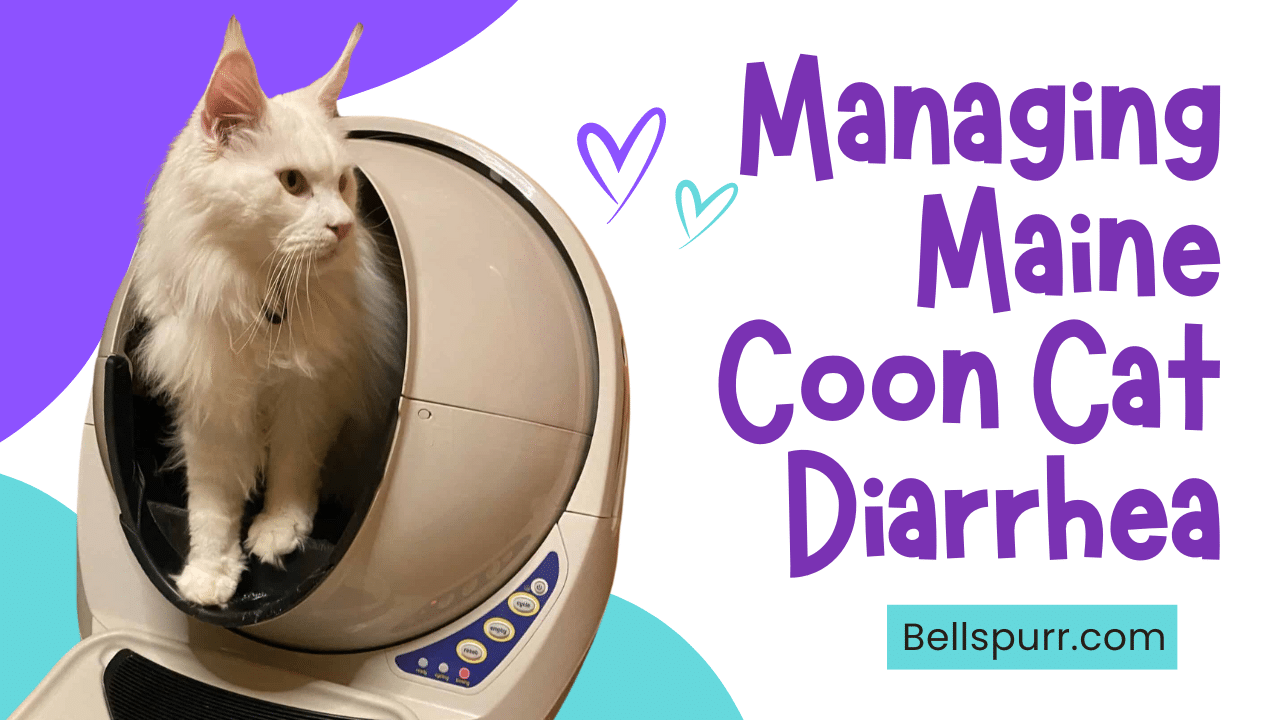Dealing with Maine Coon Cat diarrhea can be distressing for any Maine Coon Cat owner. However, there are safe and practical home remedies that can alleviate this issue before resorting to prescription medications. Understanding the underlying causes and employing appropriate remedies are crucial steps in ensuring your feline friend’s well-being.
Identifying the Causes of Maine Coon Cat Diarrhea:
Cat diarrhea can stem from various factors, including dietary changes, food intolerances, stress, parasites, bacterial infections, or underlying medical conditions. Recognizing the root cause is essential for implementing effective treatment strategies.
Once you find the possible cause of your cat’s diarrhea, you can start fixing the problem with easy home remedies.
Here are a few effective strategies to consider:
- Dietary Adjustments: Start by evaluating your cat’s diet. If you’ve recently changed their food, consider reverting to their previous diet for a few days. You can also try feeding them a bland diet, such as boiled chicken or plain rice, to help settle their stomach.
- Hydration: Diarrhea can lead to dehydration, so it’s crucial to ensure your cat stays hydrated. Provide fresh water, and consider offering low-sodium chicken broth to encourage them to drink more.
- Pumpkin Puree: Plain canned pumpkin (not the spiced pie filling) is a great source of fiber and can help firm up your cat’s stool. A small amount mixed into their food can be beneficial.
- Probiotics for Maine Coon: Like humans, cats can benefit from probiotics. These help restore the natural balance of bacteria in their gut. You can find cat-specific probiotic supplements at pet stores or consult your veterinarian for recommendations.
- Maine Coon Stress Reduction: If you suspect that stress is a contributing factor, create a calm environment for your cat. Provide a quiet space with their favorite blanket or toys, and consider using pheromone diffusers to help reduce anxiety.
- Monitor Maine Coon Condition: Keep a close eye on your cat’s behavior and stool consistency. If diarrhea lasts more than 24 to 48 hours, contact your veterinarian. Also, reach out if you notice other worrying signs. These signs include vomiting, tiredness, or blood in the stool.
- Regular Vet Check-ups: Regular veterinary visits can help catch any underlying health issues early on. Discuss any changes in your cat’s behavior or diet with your vet to ensure they remain healthy.

Defining Feline Diarrhea in Maine Coon:
Feline diarrhea is a common concern for cat owners, often appearing as loose or watery stools. The consistency can range from Tootsie Rolls to Hershey Syrup, depending on severity. Monitoring changes in texture, color, and odor can offer clues about your cat’s digestive health.
Various factors such as dietary changes, food allergies, parasites, infections, stress, or medications can cause diarrhea. Along with diarrhea, symptoms like vomiting, loss of appetite, or lethargy may also appear. Treatment options include ensuring hydration, providing a bland diet, or using probiotics to restore gut balance.
Importance of Dietary Adjustments:
Gradual dietary transitions are crucial for preventing digestive upsets in cats. Slowly introduce new foods over several days, gradually increasing the proportion to minimize the risk of diarrhea. Observing your cat’s response and adjusting accordingly ensures a smooth transition to the new diet.
Safe Home Remedies for Maine Coon Cat Diarrhea:
- Probiotics: These supplements promote gut health by replenishing beneficial bacteria, reducing diarrhea episodes, and boosting the immune system.
- Organic Pumpkin: Rich in fiber, organic pumpkin aids digestion and can help firm up loose stools. Ensure it’s unsweetened and offer it as a treat or mixed with food.
- Slippery Elm comes from the Slippery Elm tree. This calming supplement helps with stress-related diarrhea and protects the digestive system.
- High fiber foods and supplements absorb extra water in the intestines. This helps create firmer stools and eases diarrhea.
- Boiled Chicken and Rice: A simple diet of boiled chicken and white rice can help your cat’s stomach. It can also ease diarrhea.
- Raw Diet: Some cats benefit from a raw protein diet, which can alleviate chronic diarrhea in certain cases. Ensure safe handling and consider reputable brands like VivaRaw.
When to Seek Veterinary Care for your Maine Coon Kitten:
Persistent diarrhea lasting more than two days despite home remedies warrants veterinary attention. Additionally, if diarrhea accompanies vomiting, lethargy, loss of appetite, or dehydration, you need to seek prompt medical intervention. Monitor Maine coon condition and symptoms closely and seeking professional care when needed is crucial.
After seeking veterinary care, your veterinarian may perform various tests to determine the underlying cause of your cat’s diarrhea. This could include blood tests, fecal examinations, or imaging studies. Based on the diagnosis, they may recommend specific treatments or dietary adjustments to help your cat recover.
Supportive care is also essential during this time. Ensure your cat stays hydrated by providing fresh water. You can also consider offering an electrolyte solution formulated for pets, which can help replenish lost fluids. Feeding small, frequent meals rather than one or two larger ones can be easier on your cat’s digestive system.

Prepare your Maine Coon for Veterinarian visit:
Before visiting the vet, observe and document your cat’s symptoms, dietary habits, and any home remedies used. Bringing a stool sample for testing and sharing your cat’s medical history can help with diagnosis and treatment.
Additionally, make sure to note any changes in your cat’s drinking habits, energy levels, and weight. This information can provide valuable insights for the veterinarian. When you arrive at the clinic, remain calm and reassuring for your cat, as they can sense your emotions. A stress-free environment will help them feel more at ease during the examination.
Conclusion:
Home remedies for cat diarrhea can help with mild diarrhea. However, it is important to see a vet for serious or lasting symptoms. Prioritize your Maine Coon’s health and well-being by addressing diarrhea promptly and seeking professional guidance when necessary. With appropriate care and attention, you can ensure your feline companion enjoys optimal digestive health and overall wellness.

